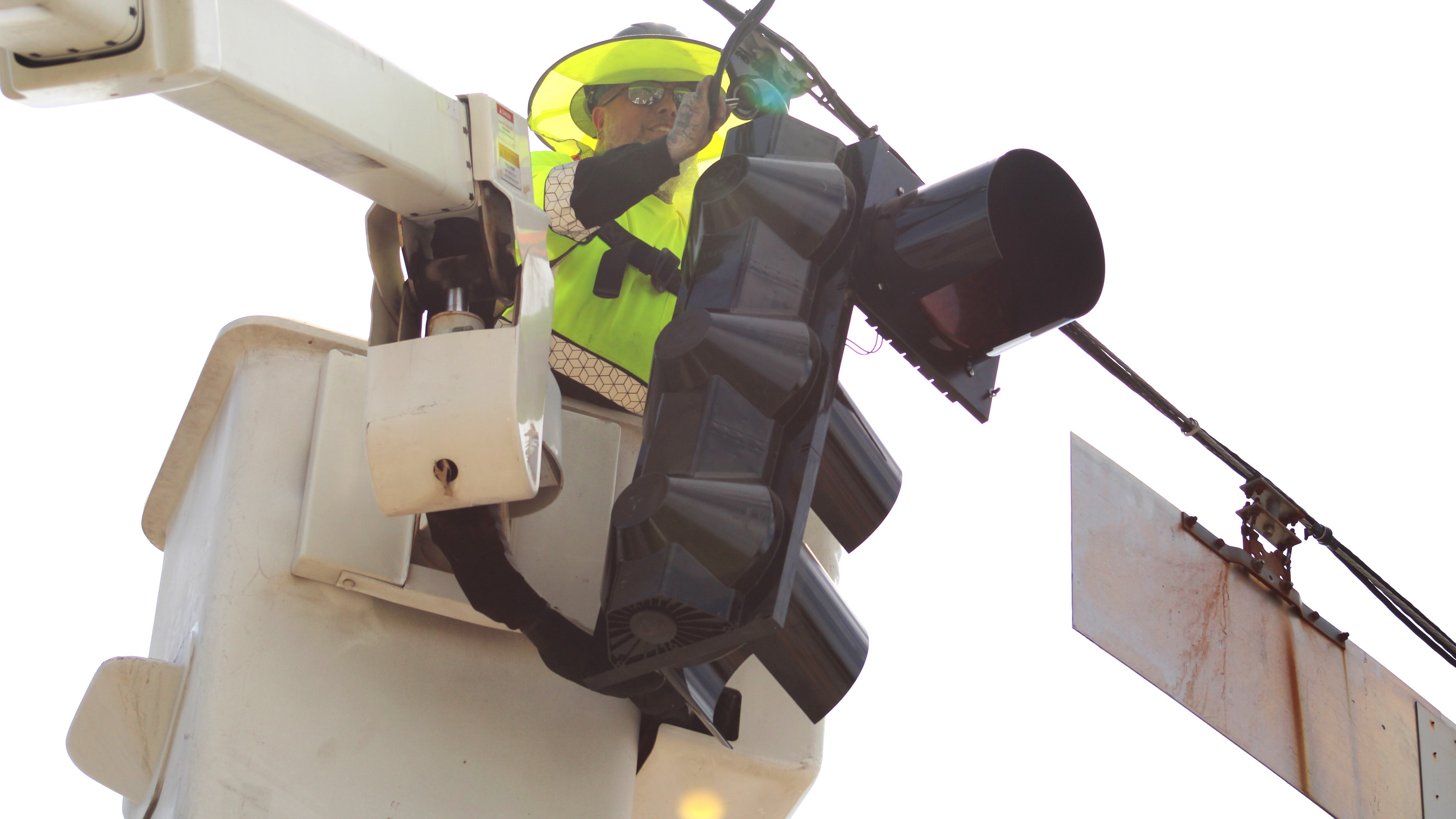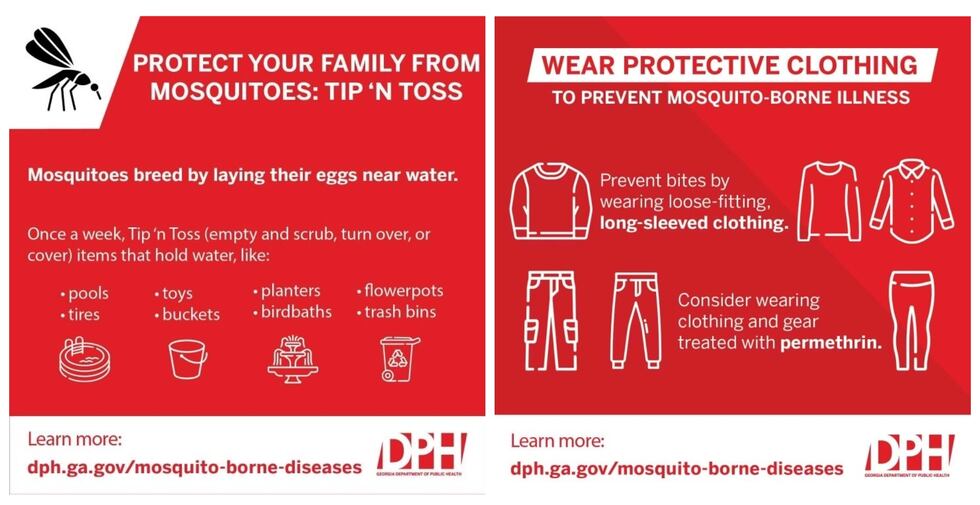Richmond County sprays neighborhoods to fight storm-spawned mosquitoes
- Cleanup: Augusta leaders OK millions to clear Hurricane Helene debris
- Deaths: Helene takes 31st victim in CSRA, a 65-year-old in Aiken County
- Communication: When Comcast expects to restore service across CSRA
- Schools: Helene debris spurs changes in Richmond County bus routes
AUGUSTA, Ga. (WRDW/WAGT) - The Richmond County Health Department is spraying neighborhoods to help curb a massive increase in mosquitoes since Hurricane Hele swept through the region over two weeks ago.
The agency is using four truck-mounted “ultra-low volume” sprayers to spread a chemical that will kill adult mosquitoes on .
Mosquito spraying will begin daily at 4 p.m. and continue until after sundown.
On Your Side: How to protect your home, wallet from damage
Winds from Hurricane Milton could cause damaged trees from Hurricane Helene to fall on Thursday. Here's how to best protect your home and wallet.
Mindy Kruty-Crothers is the director of mosquito surveillance in Richmond County with the Department of Public Health. Her crews are working on spraying every neighborhood they can.
“If mosquitoes have laid eggs around anywhere and then all of a sudden, a bunch of water is introduced, like from the hurricane, then all those eggs can turn into adult mosquitoes, so you get this mass emergence,” Kruty-Crothers said.
She says the best way to prevent disease is to wear insect repellent, empty any standing water on your property and limit your time outside at dusk and dawn.
Although mosquitoes are most active at dusk and dawn, that’s not the only time they’re out. County health officials say psorophora mosquitoes – very large ones that are being spotted across Richmond County – are also active during the daytime.
And they carry all the diseases you should be worried about, so wear long sleeves and pants along with insect repellent if you go outside.
Traffic light repairs wrap up ahead of schedule in Richmond County
Initial estimates suggested it would take about three weeks to repair all of the Helene-damaged traffic lights in Richmond County. But the work finished 10 days early.

The county has gone from spraying individual residences to spraying entire streets and neighborhoods.
“Spraying with the truck is only one facet of our mosquito control program,” Kruty-Crothers said. “The best thing people can do is protect themselves.
One mosquito can lay about 450 eggs at one time – something they do four or five times in their lives.
These mother mosquitoes are the ones that bite you; they do it to get iron to produce eggs.
For now, he said residents can help a lot by making sure there’s no standing water, especially amid hurricane debris, which can have cavities that serve as breeding grounds for the pests.
‘My daddy died a hero’: Helene claims local high school sweethearts
When Helene knocked a tree onto their home, Herry Savage rolled over in bed to protect his wife, Marcia. They both died.

Flooding causes “floodwater mosquito” eggs, which were previously laid in moist soil, to hatch. The result is very large populations of floodwater mosquitoes, most of which are considered “nuisance mosquitoes.”
Nuisance mosquitoes do not typically spread viruses that make people sick.
But rainfall can increase container-breeding mosquitoes – and these do spread diseases.
They start hatching two weeks to two months after rain, so we’ll be getting to that point soon.
Mosquitoes are also a problem across the Savannah River in South Carolina.
“Mosquitoes can lay eggs in small amounts of water, so it’s very important to get rid of standing water that can accumulate in buckets, flowerpots, grill covers, tires, trashcan lids, toys and yard decorations or debris,” said Dr. Chris Evans, South Carolina state public health entomologist.
There are at least 61 different species of mosquitoes in the region, but not all of them bite people, Evans said.
All about mosquitoes
Diseases
- Perhaps the best known disease they carry is West Nile virus.
- Mosquito-spread dengue fever is already on the rise across the region.
- Mosquitoes carry heartworms, which are endemic in the region, endangering the lives of beloved family pets.The South Carolina Department of Public Health says significant rainfall events, such as hurricanes or tropical storms, can result in increased mosquito populations in the weeks after flooding.
Mosquito bite signs
- A puffy and reddish bump appearing a few minutes after the bite
- A hard, itchy, reddish-brown bump, or multiple bumps appearing a day or so after the bite or bites
- Small blisters instead of hard bumps
- Dark spots that look like bruises
Severe reactions can occur
- In children
- In adults bitten by mosquito species they haven’t been exposed to previously
- In people with immune system disorders
More severe reactions
- A large area of swelling and redness
- Low-grade fever
- Hives
- Swollen lymph nodes
Infected bite
- Do not scratch bites. They can become infected.
- An infected bite may appear red, feel warm, or a red streak may spread outward from the bite.
- See a health care provider if symptoms worsen.

Prevention
- DPH recommends getting rid of all standing water to control the mosquito population around your home and property.
- Once a week, empty and scrub, turn over, cover, or throw out any items that hold water like tires, buckets, planters, toys, pools, birdbaths, flowerpot saucers, or trash containers. Mosquitoes lay eggs near water.
- Tightly cover water storage containers (buckets, cisterns, rain barrels) so mosquitoes cannot get inside to lay eggs.
- For containers without lids, use wire mesh with holes smaller than an adult mosquito.
- Fill tree holes to prevent them from filling with water.
- Repair cracks or gaps in your septic tank if you have one. Cover open vent or plumbing pipes. Use wire mesh with holes smaller than an adult mosquito.
- Use larvicides to treat large bodies of water that will not be used for drinking and cannot be covered or dumped out.
- When using larvicides, always follow label instructions.
- Drain and turn over kiddie pools.
- Use an outdoor adulticide to kill adult mosquitoes in areas where they rest.
- Mosquitoes rest in dark, humid areas like under patio furniture or under the carport or garage.
- When using adulticides, always follow label instructions.
- Install or repair and use window and door screens.
- Close doors, including garage doors. Do not leave doors propped open.
- Use air conditioning when possible.
Copyright 2024 WRDW/WAGT. All rights reserved.















